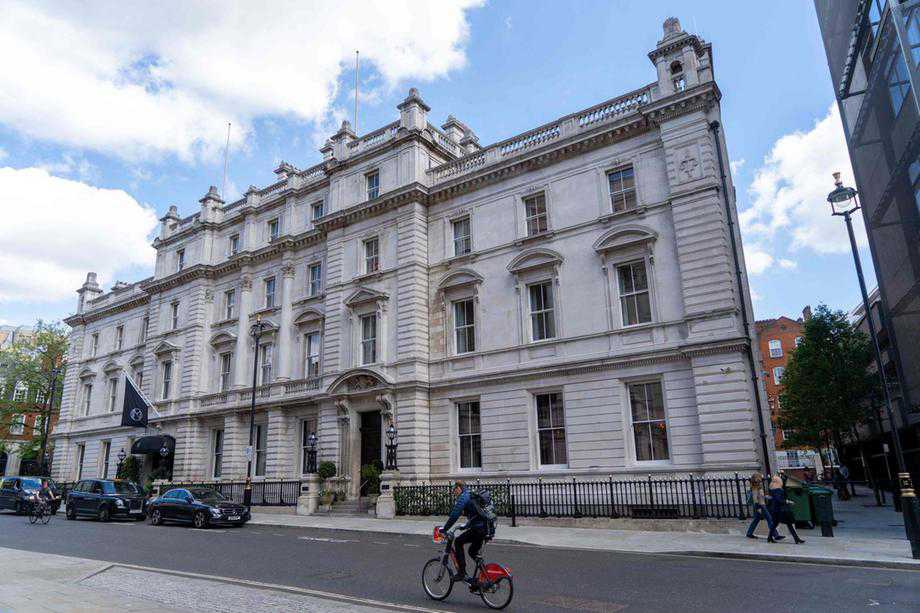From Oscar Wilde to the suffragettes, new UK museum tells account of policing London
29 May, 2021

Good old police cells have already been restored as historical exhibits in London's hottest museum, charting the advent and evolution of policing on the British capital.
The Bow Street Law enforcement Museum in Covent Lawn, which opened to visitors for the very first time on Fri, is housed inside one of London's first police stations, dating back nearly a century . 5.
Situated subsequent to a ex - magistrates' court, almost all of the website has been converted into a boutique hotel.
The 92-bedroom Nomad hotel may be the high class hotel brand's first property beyond your United States. Travellers can now spend the night in the quality II-listed building, with over night stays costing from £455 a night, a lot more than guests of her Majesty could have paid to stay here.
Section of the original law enforcement station features been repurposed as a good destination to showcase the building's extraordinary record.
Visitors can step interior renovated cells which once held murderers, suffragettes, dictators - and even the playwright Oscar Wilde.
"Bow Street Magistrates' Courtroom saw plenty of famous cases go through," the museum's curator Jen Kavanagh told AFP throughout a preview tour.
"And we're quite definitely showcasing the history of what occurred within these surfaces," she said.
Kavanagh worked closely with previous officers stationed there because the 1950s to raised appreciate its abundant backstory.
"It's been incredible to observe its transformation over the last couple of years," the curator added.
Risen from the ashes
After closing in 1992 and sitting dormant for practically three decades, the station today chronicles the three-century progression of Uk policing, which began with the Bow Road Runners.
The Runners were Britain's first organised police, made up of native volunteer watchmen in the first 18th century armed with simply a bell, rattle, lantern and staff.
They were gradually incorporated into today's Metropolitan Police Service, after it had been formed in 1829.
But Bow Street remained a busy hub for the Met over the ensuing years, with the building casing the museum brought into services in 1881.
Philip Gough, a good retired inspector who served there from 1989 until its closure, is now a trustee and joined different former colleagues at a great "emotional" reunion the other day to view the exhibits.
"When the station shut it was everybody's desire that it might be a museum," he informed AFP, as two attached Met officers trotted up to the website.
"Unlike any different station in the united states it was included with that tag of the Bow Street Runners... it experienced like we had been closing a chapter of background, but just like the phoenix, it's risen from the ashes."
Part of history
Along with chronicling the inception of modern policing from Bow Street, filled with exhibits such as a 19th century lantern and a replica Runners' blue uniform, the museum as well delves into the site's more recent history.
The Bow Road complex dealt with from IRA crimes and the extradition of former Chilean dictator Augusto Pinochet, to staying the house station of murdered policewoman Yvonne Fletcher.
She was patrolling a tiny demonstration beyond your Libyan embassy in 1984 when she was hit by shots fired from the diplomatic compound.
Meanwhile the museum also displays artefacts from the old courthouse - including a genuine dock - which closed 14 years after the police station, in 2006.
The cells once used to accommodate detainees now residence exhibits.
"There could have been graffiti on the wall space, the smell in the cells... rancid, I think, is just about the polite way of putting it," recalled Lee-Jane Yates, another officer who dished up there in the 1980s and collaborated on the exhibits.
"It had been the first law enforcement station in the united states, probably, but you're not alert to the history, and it's sole afterwards when you leave and you think, gosh, I was actually portion of history below," she added.
Source: www.thenationalnews.com
